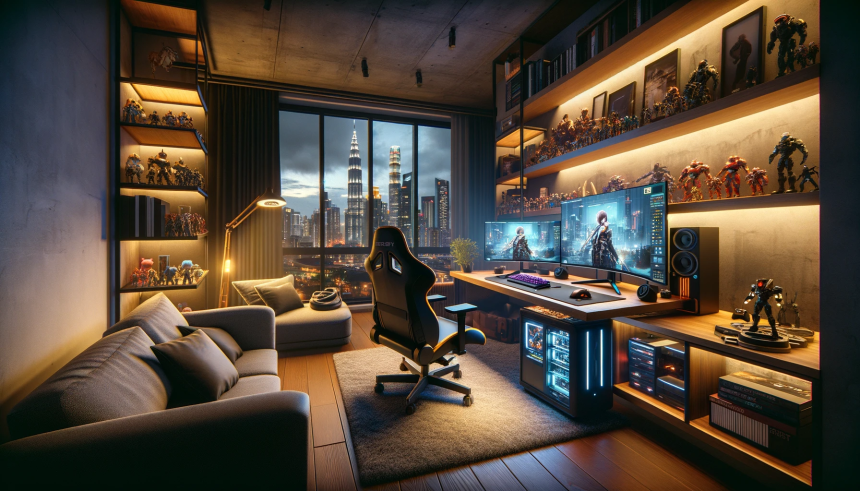ZA/UM, the studio recognized for Disco Elysium, has announced the formation of the Workers’ Alliance, a new union representing employees mainly within its UK office. This step comes on the heels of internal challenges and significant changes at the company, including project cancellations and layoffs in early 2024. The management has chosen to voluntarily recognize the union, setting it apart from other cases in the games industry where staff union efforts faced resistance. As ZA/UM moves ahead with the development of its new title, Zero Parades, staff and management both express hopes that this unionization will encourage better collaboration and stability in the workplace. The decision underscores the increasing influence of employee voices in creative environments, particularly following an eventful period for the studio marked by expansion and contraction. While management has taken a supportive stance, former employees continue to express mixed perspectives on the studio’s internal culture.
Following the commercial success of Disco Elysium, ZA/UM experienced rapid growth and ambitious project launches, which brought both opportunities and operational difficulties. In previous reports, labor organization in video game studios often encountered delays and opposition from higher management, as witnessed in the lengthy negotiations at Raven Software. However, ZA/UM’s approach contrasts with this trend, characterized by a swift and voluntary acceptance of the union. Earlier controversies, including the departure of key creative figures and mass layoffs, had put the studio under scrutiny, with former staff members openly critiquing workplace practices. This recent unionization signals a shift toward cooperative problem-solving, potentially offering a model for other studios facing similar challenges.
Why Did ZA/UM Staff Unionize?
ZA/UM employees, represented by the Workers’ Alliance and organized through the Independent Workers Union of Great Britain, decided to unionize primarily to ensure transparent dialogue between staff and management. Recent layoffs, project cancellations, and internal culture disputes led many employees to seek formal mechanisms for representation. Declan Keane, a union representative, emphasized the team’s collective spirit and the desire to foster this further, stating,
“The more I’ve worked here, the more I’ve realised that what we have is a unique makeup of people, and the union is a large effort to solidify that.”
Staff meetings remain open to teammates in Estonia and Portugal, aiming to extend involvement beyond the UK-based team.
How Has Management Responded to the Union?
ZA/UM’s management has responded by granting voluntary recognition to the new union, diverging from the adversarial approaches witnessed at other companies. Ed Tomaszewski, ZA/UM’s president, remarked,
“It was clear that recognizing a union was core to our values as a studio, to be providing fair working practices.”
Management contends that the willingness to recognize and engage with the union demonstrates a commitment to a fair environment. Despite internal dissent from several former staff, current leadership maintains that open communication remains central to their strategy.
What Projects Lie Ahead for ZA/UM?
The studio is presently focusing on two main projects: Zero Parades, an upcoming spy RPG retaining the dialogue-heavy approach of Disco Elysium, and a mobile version of their original hit. While the development of Zero Parades signals a philosophical return to the mechanisms that defined Disco Elysium, uncertainty persists within the fanbase about whether the new title can recapture the original’s appeal following recent personnel cuts and leadership changes. As some former creatives branch out with their own initiatives, such as the book/dev diary project from Summer Eternal studio, the talent which defined ZA/UM’s early days continues to shape the wider indie landscape.
Unionization in creative industries seeks to balance the rapid changes that come from commercial success with employee welfare and participation. In ZA/UM’s situation, the union represents an attempt to establish security after a turbulent period marked by fast expansion, talent loss, and shifting business strategies. Notably, the swift recognition by management means ZA/UM avoids the lengthy bargaining commonly seen elsewhere, potentially smoothing the path for future negotiations. For industry observers, this case might serve as a reference point when assessing how creative studios can mediate between business needs and inclusive workplace culture. Those working within game development may find value in monitoring ZA/UM’s progress to gauge the impact of unionization on studio output and stability. Watching the ongoing development of Zero Parades may also offer insights into how collaborative efforts influence creative results in a shifting industry landscape.










